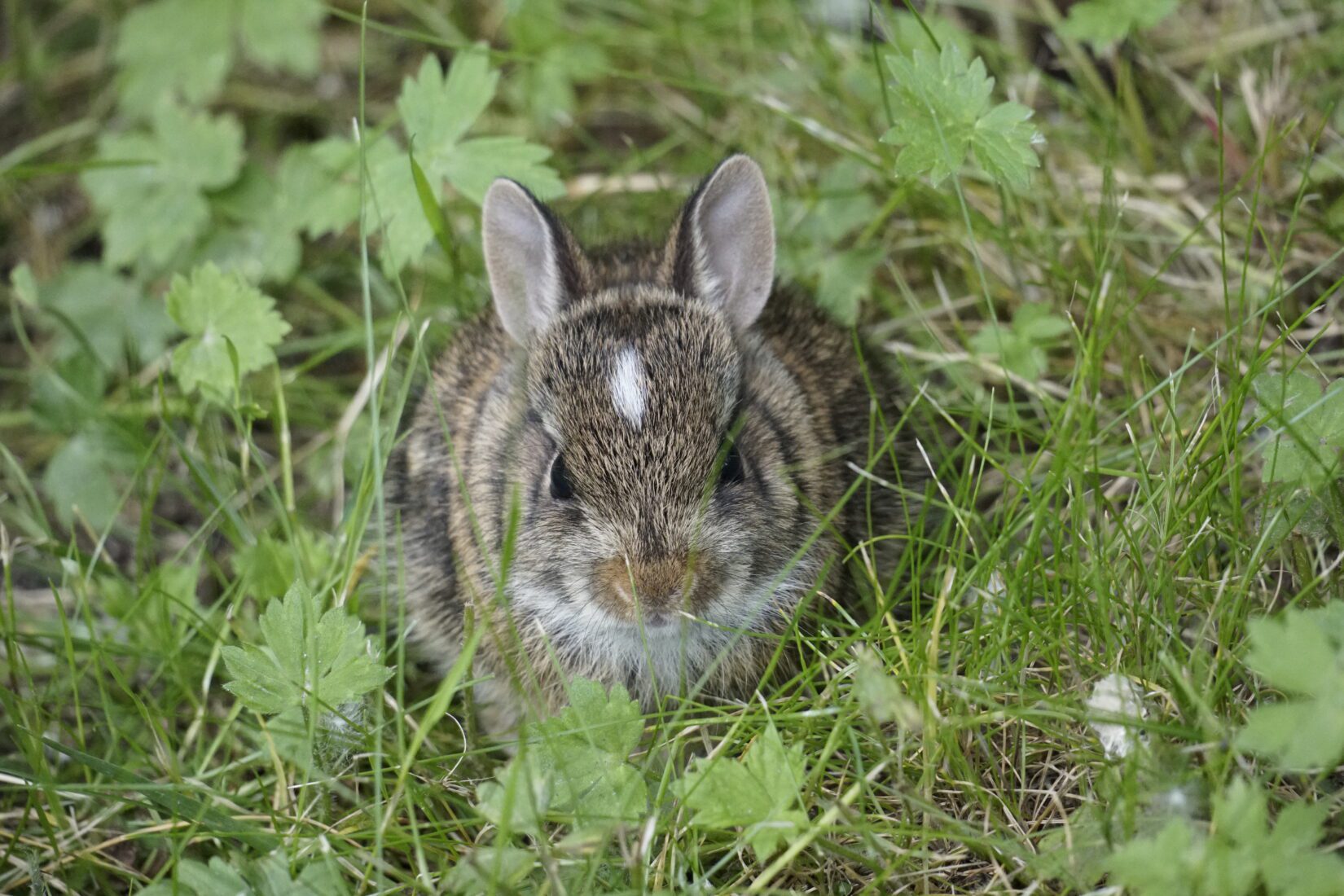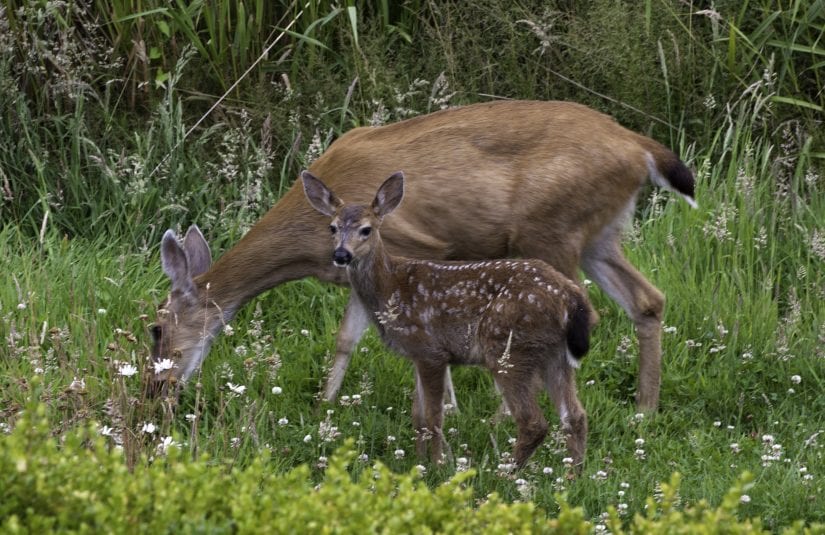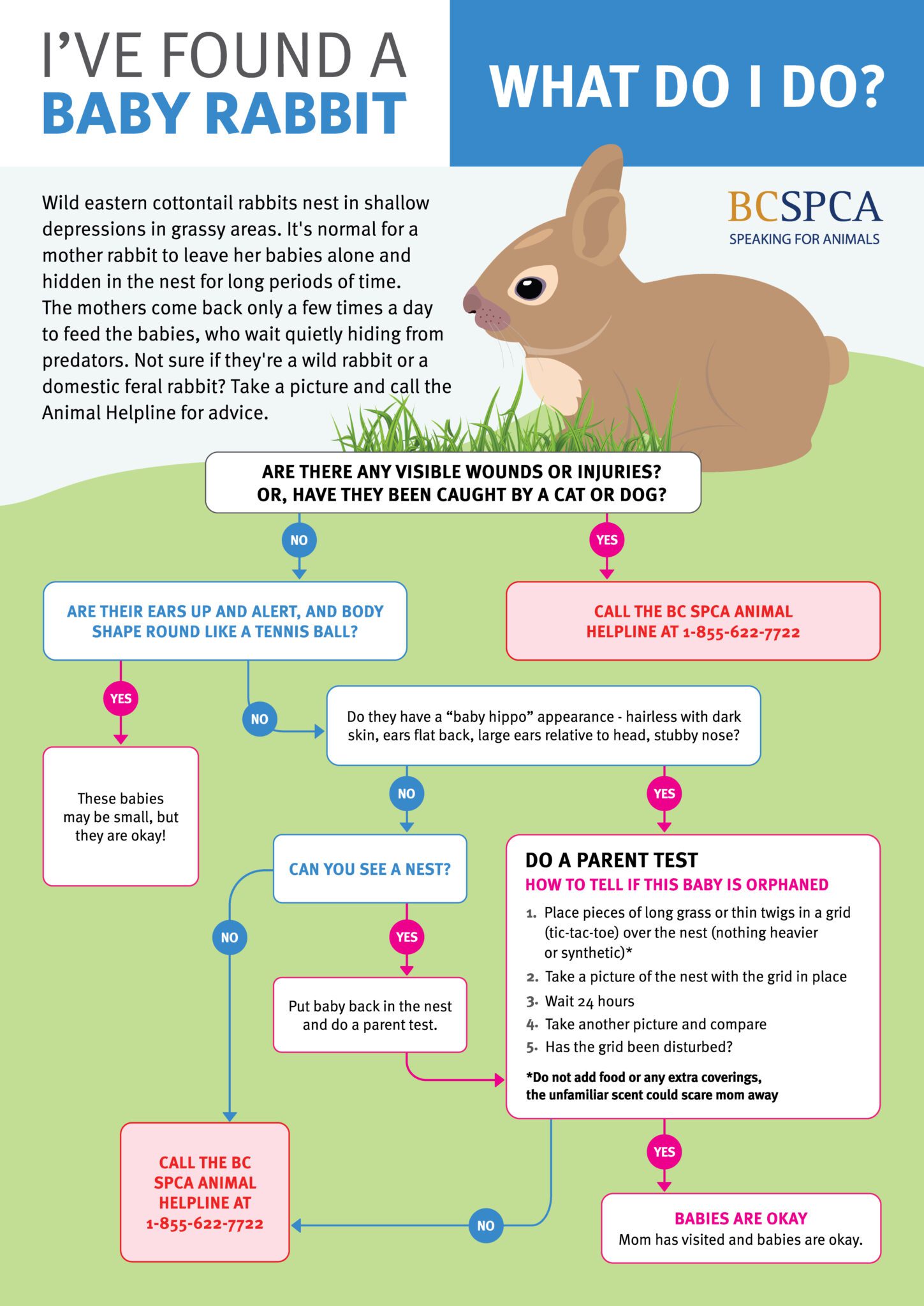Just because you see a rabbit in the wild doesn’t mean they’re a “wild” rabbit. Free-living populations of domestic rabbits exist in urban areas — these rabbits are often abandoned pets or their offspring. The BC SPCA is opposed to the abandonment of pet rabbits and it is also illegal under the BC Prevention of Cruelty to Animals Act.
Rabbit hemorrhagic disease (RHD) has been found in feral rabbits on Vancouver Island and in the Lower Mainland – learn more about RHD.
How can I tell them apart?
Eastern cottontails are a wild species, with brown bodies and short, fluffy white tails. Cottontail rabbits are small (~1 kg) animals, with small ears and lean legs and bodies.
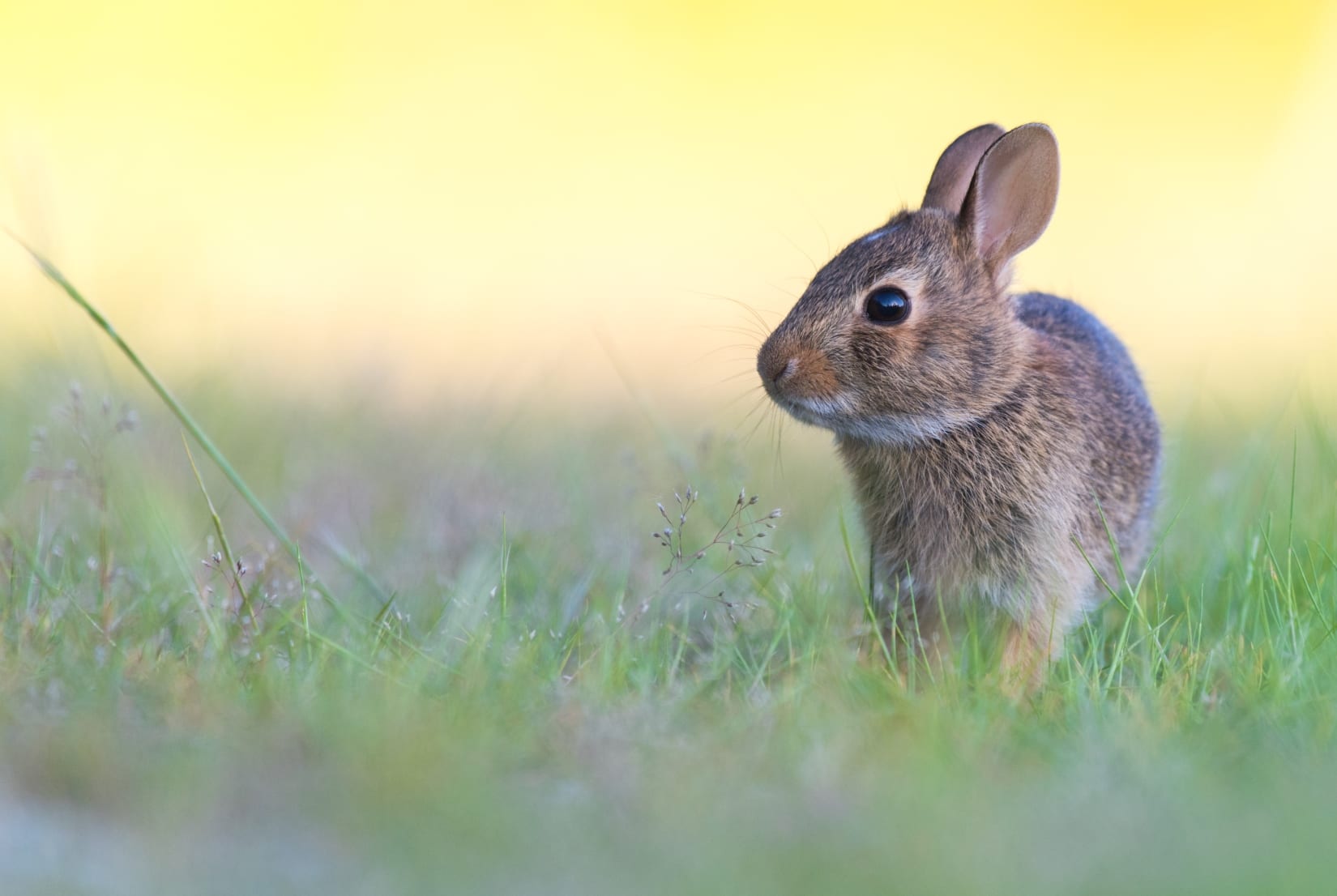
Domestic feral rabbits can be a variety of colours like black, tan, grey, white or spotted, and can look like Eastern cottontails at first glance – like this rabbit found living outdoors:
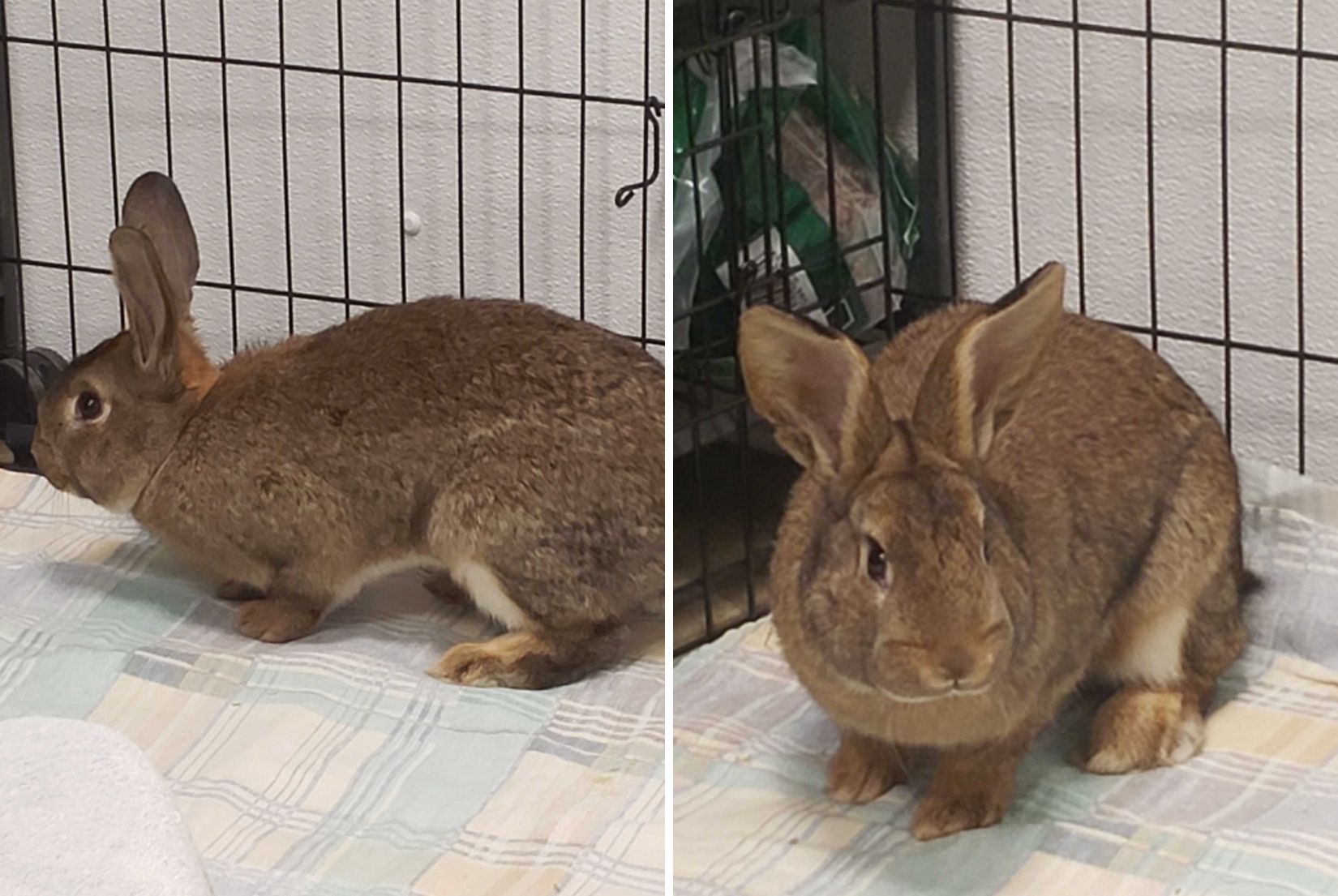
Feral rabbits are generally larger (1 – 2.5 kg), with big wide floppy ears and a more boxy face. Can you spot these differences in the photos above?
Both types of rabbits are attracted to sheltered, landscaped yards with dense shrub or undergrowth. Eastern cottontails don’t dig burrows, instead nesting in shallow depressions in grassy areas. Feral rabbits do burrow, and have a reputation for damaging lawns and gardens. For help addressing problems with feral rabbits, read our best practice sheet on rabbits.
Wild rabbits are normally solitary animals, usually seen on their own. Feral rabbits are social animals and may be seen in small groups.
Don’t judge a rabbit by their behaviour – domestic feral rabbits that aren’t used to people can be very fearful, and wild rabbits may be approachable if they’re sick or injured. In general, rabbits living in the wild are highly susceptible to stress – trying to capture or restrain them may cause death, a condition known as capture myopathy.
I found a baby rabbit
Baby rabbits found alone don’t always need help – it’s normal for a mother rabbit to leave her babies hidden in the nest for long periods of time. The mothers will come back only a few times a day to feed the babies, who wait quietly while hiding from predators.
If you’re unsure if they need help, or the babies (and any adults) are obviously injured (e.g., bleeding, broken limbs), check our webpage for more information or call the BC SPCA Animal Helpline for advice at 1-855-622-7722.
